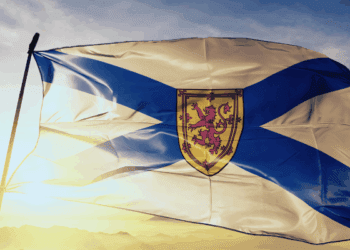 Ottawa should proceed with its reported plans to tax employer-provided health and dental insurance – but only if the revenue is used to make private insurance more affordable, write Brian Lee Crowley and Sean Speer.
Ottawa should proceed with its reported plans to tax employer-provided health and dental insurance – but only if the revenue is used to make private insurance more affordable, write Brian Lee Crowley and Sean Speer.
By Brian Lee Crowley and Sean Speer, Dec. 13, 2016
Reports that the upcoming federal budget will announce the government’s plan to tax employer-provided health and dental insurance have generated considerable buzz in Ottawa. It would be a significant change that would affect millions of Canadians and involve billions of dollars. But it could be an idea worth supporting, including by free-market proponents.
Here’s the issue. The present tax treatment advantages Canadians who receive health and dental insurance from their employer over those Canadians who do not. In effect, those with such workplace benefits receive a sizeable tax subsidy and those without must purchase insurance with after-tax dollars and minimal government support. This is manifestly arbitrary and unfair.
The result is that a considerable share of the population — roughly four-in-10 — don’t have private health insurance and must pay for non-insured services with out-of-pocket spending. In fact, out-of-pocket spending now totals more than $30 billion per year or roughly 14 per cent of total health-care spending in Canada — more than the share paid by private insurance.
Those with such workplace benefits receive a sizeable tax subsidy and those without must purchase insurance with after-tax dollars and minimal government support
This burden falls disproportionately on less affluent households, unattached individuals and senior couples who spend a greater share of their disposable income on health care. And it’s likely to get worse. New research on job precariousness in Canada shows that fewer Canadians will be able to rely on long careers with a single employer or have access to auxiliary benefits such as workplace health insurance.
Differing tax treatment for employer-provided health and dental insurance and individually purchased insurance thus not only fails a basic test of fairness and equity, it’s ill-designed for current and future labour market trends.
The solution is a “tax swap,” whereby the government ceases treating workplace health and dental insurance as non-taxable and in turn uses the resulting revenues to establish a new refundable tax credit to help defray the costs of buying private insurance. The new tax credit might involve a redesign of the existing Medical Expense Tax Credit and would be available to all Canadians, irrespective of their employment circumstances, including in the form of a cash transfer for low-income citizens who don’t pay income taxes.
 One such proposal, as suggested in a report last year from the Advisory Panel on Healthcare Innovation, is to provide an annual tax benefit of up to $750 for individuals with incomes less than $44,000 and up to $1,500 for families with incomes less than $89,000. This particular scenario would be largely paid for by changing the current tax treatment of workplace insurance but could be adjusted if the government chose to supplement it with additional monies.
One such proposal, as suggested in a report last year from the Advisory Panel on Healthcare Innovation, is to provide an annual tax benefit of up to $750 for individuals with incomes less than $44,000 and up to $1,500 for families with incomes less than $89,000. This particular scenario would be largely paid for by changing the current tax treatment of workplace insurance but could be adjusted if the government chose to supplement it with additional monies.
The result is that households with incomes below $100,000 would be better off. The growing costs of out-of-pocket spending on health care could be slowed. And government policy would be better aligned with what Finance Minister Bill Morneau has called “job churn” and the prospect of multiple careers and employers.
But this is all a big “if.” It depends on whether the government is planning to replace the current tax treatment of employer-provided insurance with a new, fairer, and more effective model, or whether it will simply scoop up the added tax revenues for either new spending or reduced budget deficits.
Just grabbing the tax revenues would amount to a $3-billion tax hike on 13.5-million taxpayers that would ultimately lead to fewer Canadians having insurance and to more out-of-pocket spending on health care. This is what happened when the Quebec government started taxing employer-provided health insurance in 1993 and didn’t accompany it with a new broad-based benefit. Workplace insurance fell by one-fifth and wasn’t offset by a corresponding increase in individually purchased insurance.
If the plan amounts to a tax grab, it’s a bad deal that Ottawa should send back to the drawing board.
Brian Lee Crowley is the managing director and Sean Speer is a Munk senior fellow at the Macdonald-Laurier Institute.




